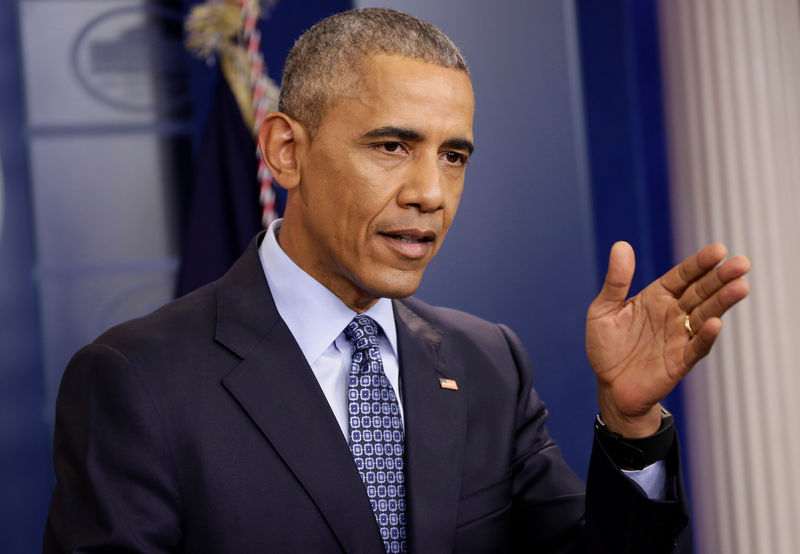By Jeff Mason and Ayesha Rascoe
WASHINGTON (Reuters) - President Barack Obama suggested on Wednesday that moving the U.S. embassy to Jerusalem could have "explosive" results and said he was worried that the prospects for a two-state solution to the Israeli-Palestinian conflict were waning.
U.S. President-elect Donald Trump has promised to re-locate the embassy to Jerusalem, breaking with longstanding U.S. policy. Israel and Palestinians both claim Jerusalem as their capital, and such a change would draw international condemnation.
"When sudden unilateral moves are made that speak to some of the core issues and sensitivities of either side, that can be explosive," Obama said at his last news conference as president.
He said his administration had warned the incoming Trump administration that big shifts in policy had consequences.
"That's part of what we've tried to indicate to the incoming team in our transition process, is pay attention to this because this is ... volatile stuff," he said in response to a question about a potential embassy move.
Obama has said repeatedly that Israeli settlement activity in the occupied West Bank and East Jerusalem is an impediment to creating two states, which the United States believes is the best solution to decades of conflict between Israelis and Palestinians.
He said his administration did not block a recent U.N. resolution on Israeli settlement activity because it felt a two-state solution was the only option for peace.
"The goal of the resolution was to simply say that the ... growth of the settlements are creating a reality on the ground that increasingly will make a two-state solution impossible," Obama said.
"It was important for us to send a signal, a wakeup call that this moment may be passing."
Israel described the decision by the United States to abstain in the vote rather than wield its veto as "shameful." The U.S. move, along with a sharp speech by U.S. Secretary of State John Kerry about the issue, reinforced tensions between the outgoing Obama administration and Israeli Prime Minister Benjamin Netanyahu.
